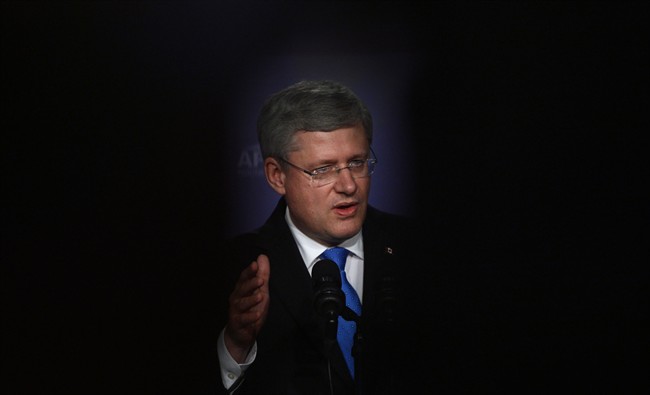Canada’s electronic spy agency is currently embroiled in spying allegations targeting Brazil’s Mines and Energy Ministry.

But who oversees the Communications Security Establishment Canada?
The super-secret agency based in Ottawa can monitor emails, text messages and phone calls.
In general, the agency is not allowed to spy on communications within Canada. But everything outside our borders is fair game.
Speaking at the APEC summit in Bali, Prime Minister Stephen Harper said he is very concerned about the spying reports.
“We do have a commissioner of the Canadian Security Establishment. That commissioner audits, does surveillance and audits the organization to make sure its operating within Canadian law,” he said.
“As I say, we are concerned and we will do appropriate follow-up.”
The Office of the CSE Commissioner was established in 1996 to conduct in-depth independent reviews of the agency.
The office of commissioner Robert Décary declined an interview request with Global News.
But in his recent report to Parliament, Décary said some Canadians may have been spied on in the past year, but due to poor record-keeping, he said he couldn’t be sure.
“A number of CSEC records relating to these activities were unclear or incomplete,” said the report, tabled in August. “After in-depth and lengthy review, I was unable to reach a definitive conclusion about compliance or non-compliance with the law.”
- Posters promoting ‘Steal From Loblaws Day’ are circulating. How did we get here?
- Canadian food banks are on the brink: ‘This is not a sustainable situation’
- Video shows Ontario police sharing Trudeau’s location with protester, investigation launched
- Solar eclipse eye damage: More than 160 cases reported in Ontario, Quebec
CSEC says it did not break the rules.
A spokesman said the commissioner’s office delivers classified reports to the Minister of National Defence, who in turn tables a public annual report in Parliament.
The vast majority of the commissioner’s recommendations – about 90 per cent – have been accepted by the agency, the official said.
The office has an annual budget of $2.2 million, and employs 11 people, up from a previous eight.
The CSEC says it operates within all Canadian laws, including the Canadian Charter of Rights and Freedoms, the Criminal Code, the Canadian Human Rights Act and the Privacy Act.
In recent years, the privacy commissioner, the information commissioner and the Auditor General have each conducted reviews at CSEC. “No concerns related to lawfulness were raised,” the website says.
Martin Rudner, the founding director of the Canadian Center of Intelligence and Security Studies at Carleton University, said the Brazil breach news is “not new.”
“We know that the function that of the Communications Security Establishment Canada is to collect foreign intelligence. We know that economic intelligence is in the national interest and that CSEC collects economic intelligence in the national interest,” said Rudner.
“The message I think which is out there, to a country like Brazil, is that you require counter-intelligence capability. In other words you have to protect your sensitive communications – not only against Canada, but against every other country engaged in energy investment, mining investment, financing mining investment, financing energy investment.
“Everybody will be targeting the Brazilians to make sure that whatever the Brazilians are doing, those countries are aware of.”
– with files from Jacques Bourbeau and the Canadian Press


Comments